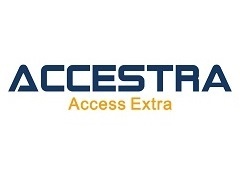The Responsible Person for Pharmacovigilance (RPPV) is the Chinese equivalent of the Qualified Person Responsible for Pharmacovigilance (QPPV) in EU and other countries. Like QPPV, the primary role of an RPPV in China is to ensure the pharmacovigilance system is following regulations and for the safety of the marketed products and serve as the primary contact for regulatory authorities.
In China, RPPV plays an essential part in the Good Pharmacovigilance Practice (hereinafter “China GVP”) and the Inspection Guideline for Pharmacovigilance (hereinafter “PV Inspection Guideline”), both were released by National Medical Products Administration (NMPA) in May 2021 and April 2022 respectively.
This article will guide you through the key regulatory requirements for RPPV in three areas: 1) RPPV Qualification, 2) RPPV Responsibilities, and 3) key functions.
- China RPPV Qualification
- RPPV is required as a necessary part of the Drug Safety Committee (DSC) which the Market Authorization Holder (MAH) must set up for its pharmacovigilance system.
- A qualified RPPV must possess an in-depth understanding of pharmacovigilance-related skills, Chinese laws and regulations, and technical guidelines.
- Additionally, the RPPV should hold executive positions within the company, possess degrees in relevant majors (such as medicine, pharmaceutics, epidemiology), and have at least three years of professional experience in pharmacovigilance.
- The RPPV should be registered in China’s National Adverse Drug Reactions (ADR) Monitoring System. Any changes to the RPPV should be updated within 30 days in the system.
- Main Responsibilities of RPPV in China Pharmacovigilance
The RPPV is responsible for ensuring that the pharmacovigilance system is functioning correctly and continually improving to comply with relevant laws and regulations. The major responsibilities of the RPPV include:- Ensuring the monitoring and reporting of adverse drug reactions in compliance with China’s regulatory requirements.
- Overseeing risk-related activities such as detection, assessment, and control of drug safety and risks to ensure effective implementation of risk-control measures.
- Supervising and ensuring timely and efficient communication of drug safety information.
- Ensuring unblocked communication channels between the MAH and the drug supervision departments and ADR monitoring institutions.
- Reviewing and signing important documents or files related to the pharmacovigilance work.
- Key Functions throughout Pharmacovigilance Activities
- In post-marketing safety studies, RPPV is responsible for reviewing and approving the research plan / proposal, the Periodic Safety Update Report (PSUR) and the Periodic Benefit-Risk Evaluation Report (PBRER). These approvals have a significant impact on the risk control process of the MAH.
- In the Management of File, Records, and Data, the MAH is required to update the Pharmacovigilance System Master File (PSMF) promptly. This file includes detailed information about the RPPV, such as
residential area, contact information, resume, and a description of responsibilities. Any sign of an incompetent RPPV would result in a negative evaluation of the pharmacovigilance system conducted by the MAH. - The PV Inspection Guideline lists the RPPV as an independent item with separate inspection parts. For instance, the RPPV’s position, academic background, qualification, and professional experience must meet the criteria outlined in the inspection guideline. Additionally, the RPPV must possess the necessary technical knowledge and understanding of the PV system and its components. The table below highlights the most critical inspection items according to the respective regulations.
|
No. |
Item |
Inspection Items (Defect Level) |
Basis |
|---|---|---|---|
| PV 04 | RPPV | 8. whether the MAH designates a RPPV to oversee the operation & maintenance of the PV system (++) | Articles 23, 24, 25, 75, 82, and 106 of GVP |
| 9. whether the position, academic background, qualification, and professional experiences meet the requirements; and whether the RPPV has a good understanding of the relevant laws & regulations (+) | |||
| 10. whether the description of responsibilities of the RPPV is comprehensive, clear, and reasonable | |||
| 11. whether the RPPV is registered and updated, if any changes, in time in the National ADR Monitoring System (+) | |||
| PV 22 | Post marketing Safety Studie | 78. whether the post-marketing safety study is conducted in compliance with the requirements from provincial and above drug supervision departments (++) | Articles 69-78 of GVP |
| 79. whether the post-marketing safety study is conducted proactively according to the risk of the drug | |||
| 80. whether the research plan/ proposal is made by professional staff, and whether it is reviewed or approved by RPPV | |||
| PV 23 | PSUR / PBRER | 85. whether the report is reviewed and approved by RPPV | Articles 79-86 of GVP |
Are you seeking a qualified RPPV/QPPV in China?
Are you seeking a qualified Responsible Person for Pharmacovigilance (RPPV) in China? Look no further than Accestra. Our team of experts can provide you with a highly qualified RPPV in China who meets all necessary position, academic, qualification, and professional experience requirements outlined in the PV Inspection Guideline.
Our RPPV services are tailored to meet your specific needs and requirements in China, and our experts can support you with end-to-end pharmacovigilance-related tasks in the country. Trust Accestra to ensure compliance and success in your pharmacovigilance efforts in China.
Contact Us
For more information or request for support please email: info@accestra.com








